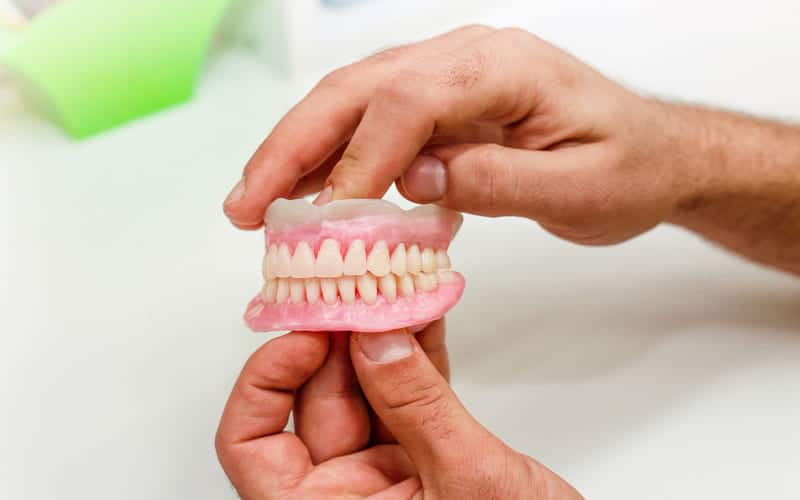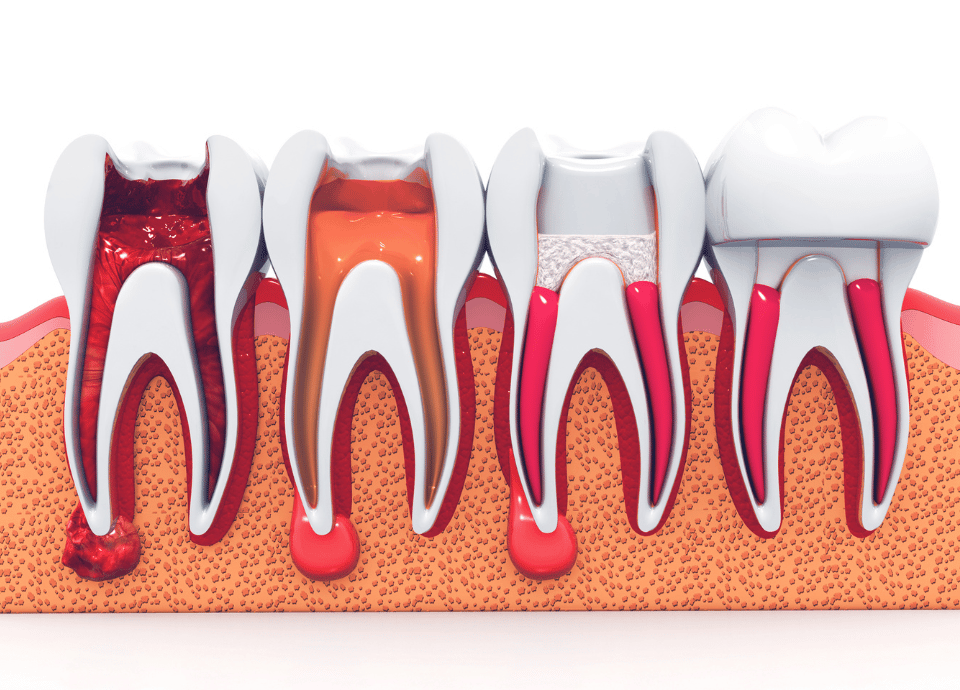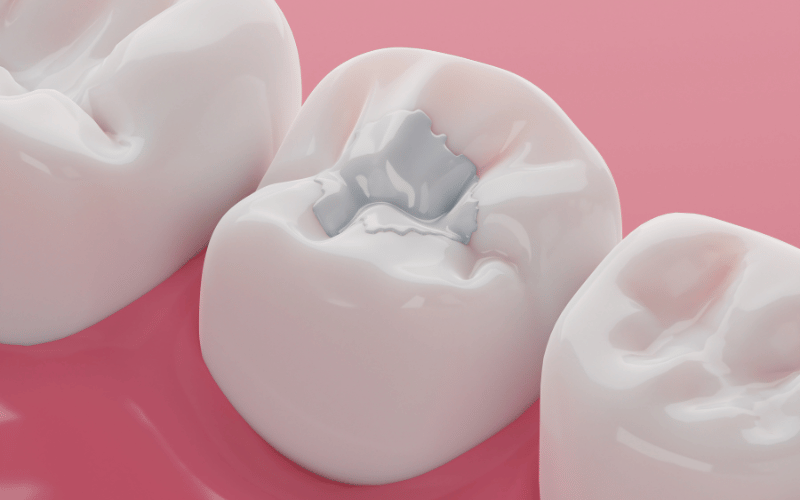Call: (810) 674-3060
Smile Makeover 101: A Guide To Restorative Dentistry

Introduction
Maintaining good oral health is crucial for our overall well-being; restorative dentistry is significant. While preventive measures like regular dental check-ups and proper oral hygiene practices play a vital role in keeping our teeth and gums healthy, there are times when dental issues arise that require more than just routine care. This is where a restorative dentist comes into the picture. This comprehensive guide will explore why choosing a restorative dentist is essential for preserving your smile and oral health.
Understanding Restorative Dentistry
a. What Is Restorative Dentistry?
Restorative dentistry is a specialized field that focuses on diagnosing, preventing, and treating oral health issues, particularly those related to damaged or missing teeth. Unlike general dentistry, which emphasizes preventive care and routine check-ups, restorative dentistry comes into play when teeth and gums require repair or restoration due to various factors, including decay, injury, or aging.
b. The Scope of Restorative Dentistry
Restorative dentistry encompasses various treatments and procedures to restore teeth and oral structures’ form, function, and aesthetics. Some of the common issues that restorative dentists address include:
- Tooth decay
- Cracked or chipped teeth
- Tooth loss
- Gum disease
- Tooth erosion
- Dental infections
- Bite problems
c. Common Restorative Dentistry Procedures
Restorative dentists are trained to perform various procedures tailored to specific dental issues. Some of the most popular therapeutic dental procedures are listed below:
1. Dental Fillings
Used to treat cavities, dental fillings involve removing decayed tooth portions and filling the space with materials like amalgam or composite resin.
2. Crowns and Bridges
Crowns are custom-made caps covering damaged or weakened teeth, while bridges replace missing teeth by anchoring them to adjacent healthy teeth.
3. Dental Implants
Implants are artificial tooth roots surgically implanted into the jawbone to support dental crowns, bridges, or dentures, providing a natural-looking and durable solution for tooth loss.
4. Dentures
Dentures are removable appliances that replace multiple missing teeth, improving chewing and speech abilities.
5. Root Canal Therapy
This procedure involves removing infected pulp from a tooth, preserving the outer structure, and preventing extraction.
6. Periodontal Treatment
Restorative dentists also address gum diseases like periodontitis, which can lead to tooth loss if left untreated.
The Importance Of Restorative Dentistry
1. Preserving Tooth Functionality
One of the primary goals of restorative dentistry is to preserve and enhance the functionality of your teeth. When left untreated, dental issues can progress, leading to pain, discomfort, and difficulties with everyday activities like eating and speaking. Restorative procedures help restore the proper function of your teeth, allowing you to enjoy a healthy and pain-free smile.
2. Enhancing Aesthetics
Beyond functionality, restorative dentistry also focuses on improving the aesthetics of your smile. A damaged or decayed tooth can significantly affect your appearance and self-confidence. Procedures like dental crowns, veneers, and teeth whitening can transform your smile, boosting your self-esteem and overall well-being.
3. Preventing Further Damage
Neglecting dental issues can result in further damage and complications. For instance, untreated cavities can lead to infections, requiring more extensive and costly treatments like root canals or extractions. Restorative dentistry allows for early intervention, preventing these issues from worsening.
4. Boosting Self Confidence
A beautiful and healthy smile can profoundly impact your self-esteem and social interactions. Restorative dentistry not only restores your oral health but also gives you the confidence to smile, speak, and engage with others without hesitation. It can be a life-changing transformation for individuals living with dental problems.
Qualities Of An Exceptional Restorative Dentist
Choosing the right restorative dentist is crucial to achieving optimal results. Here are some essential qualities to look for when selecting a restorative dentist:
1. Extensive Training and Expertise
An exceptional restorative dentist should have undergone rigorous training and education in restorative dentistry. They should stay updated on the latest advancements in dental techniques and technologies to provide the best possible care for their patients. Credentials, certifications, and years of experience are indicators of their expertise.
2. State-of-the-art technology
Modern dentistry makes extensive use of cutting-edge tools and technologies. A reputable restorative dentist should have access to state-of-the-art tools and materials to ensure precise diagnosis and treatment. This includes digital X-rays, 3D imaging, and computer-aided design and manufacturing (CAD/CAM) systems for creating custom restorations.
3. Compassionate and Patient-Centered Care
Dental procedures, especially restorative ones, can be intimidating for many patients. A great restorative dentist should exhibit compassion, empathy, and patience when dealing with patients. They should be excellent communicators, taking the time to explain procedures, answer questions, and alleviate any concerns.
4. Collaboration and Communication
In complex cases, restorative dentists often work closely with other dental specialists such as orthodontists, oral surgeons, and periodontists. Effective collaboration and communication between healthcare providers are essential for comprehensive care. A restorative dentist who can coordinate with other specialists ensures you receive the best possible treatment.
Common Restorative Dental Procedures
Let’s delve deeper into some of the most common restorative dental procedures and their significance:
1. Dental Fillings
Dental fillings are a fundamental restorative procedure for treating cavities (dental caries). When caught early, holes can be repaired by removing the decayed portion of the tooth and filling the space with materials like amalgam, composite resin, or glass ionomer cement. This stops the decay and restores the tooth’s structural integrity and function.
2. Crowns and Bridges
Dental crowns are custom-made caps that fit over damaged or weakened teeth, providing protection and support. They can be created from various materials, such as porcelain, metal, or a mix. Crowns are used to:
- Strengthen and protect a tooth after a root canal treatment.
- Restore a broken or severely decayed tooth.
- Improve the appearance of crooked or stained teeth.
- Serve as anchors for dental bridges to replace missing teeth.
Dental bridges, on the other hand, are used to replace one or more missing teeth by anchoring them to adjacent healthy teeth or dental implants. They restore your smile and prevent adjacent teeth from shifting out of position.
3. Dental Implants
A new method of restoring missing teeth is dental implants. To act as fake tooth roots, titanium posts are surgically inserted into the jawbone. Once integrated with the bone, dental implants can support various restorations, including crowns, bridges, and dentures. Implants offer stability, durability, and a natural appearance, making them an ideal choice for tooth replacement.
4. Dentures
Removable prosthetics called dentures are used to replace many lost teeth. They are custom-designed to fit comfortably and securely in your mouth. Dentures restore your ability to chew and speak and enhance your facial aesthetics. Modern dentures are made from advanced materials, making them more comfortable and natural-looking.
5. Root Canal Therapy
Root canal therapy is designed to save a severely infected or damaged tooth from extraction. During this treatment, the infected pulp (the innermost part of the tooth) is removed, and the canals are cleaned and sealed. This prevents the spread of infection and allows the tooth to remain in place, preserving its function and appearance.
6. Periodontal Treatment
Gum or periodontal disease can lead to tooth loss if left untreated. Restorative dentists are trained to diagnose and treat gum disease, which may involve deep cleaning procedures, scaling and root planing, and even surgical interventions in advanced cases. Treating gum disease not only preserves your teeth but also promotes overall oral health.
Choosing The Right Restorative Dentist
Selecting the right restorative dentist is essential for ensuring the success of your dental treatments. You can take the following actions to make an informed choice:
1. Research and Referrals
Start by researching restorative dentists in your area. Read online reviews, ask for recommendations from friends and family, and check the dentist’s credentials and certifications. Referrals from trusted sources can provide valuable insights into the quality of care you can expect.
2. Consultation and Evaluation
Schedule a consultation with the restorative dentist you are considering. During the consultation, discuss your oral health concerns and treatment goals. Pay attention to how the dentist communicates with you, addresses your questions, and explains treatment options. A good dentist will take the time to create a personalized treatment plan tailored to your needs.
3. Affordability and Insurance
Dental procedures, especially restorative ones, can be costly. Inquire about the cost of the proposed treatment plan and whether the dentist accepts your dental insurance. Some dentists offer flexible payment options or financing plans to make dental care more affordable.
4. Comfort and Convenience
Consider the location of the dental practice and whether it is convenient for you to access. Additionally, evaluate the overall comfort and cleanliness of the office, as a welcoming environment can enhance your overall experience.
Investing in your oral health through restorative dentistry is an investment in your overall well-being. Whether you’re dealing with tooth decay, missing teeth, or gum disease, a skilled restorative dentist in Burton, MI, can help you regain your smile, function, and confidence. By understanding the importance of restorative dentistry, recognizing the qualities of an exceptional restorative dentist, and making an informed choice, you can embark on a journey toward optimal oral health and a radiant smile. Remember, restoring your smile is not just about aesthetics; it’s about improving your quality of life and ensuring your oral health for years. Don’t hesitate to take the first step toward a healthier, happier smile by consulting a trusted restorative dentist today. Your smile’s future is in your hands, and the possibilities are limitless. Visit Burton Family Dental, your go-to restorative dentist. Schedule your Restorative Dentistry appointment today!




